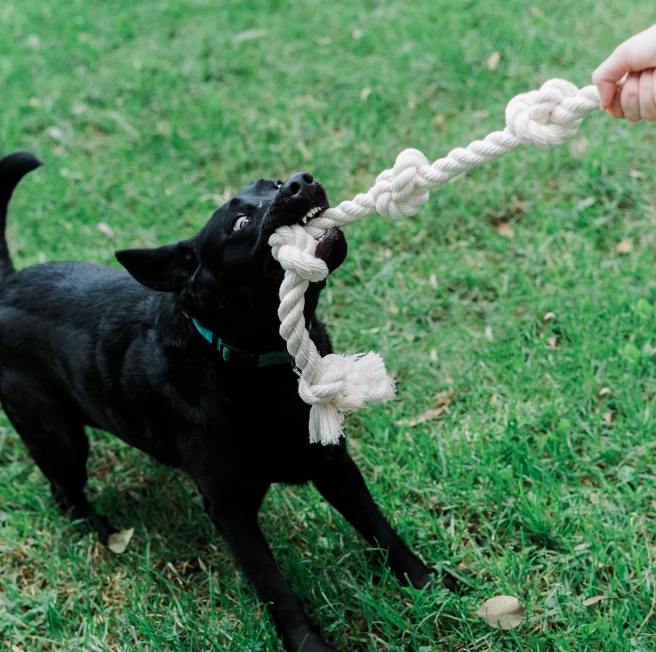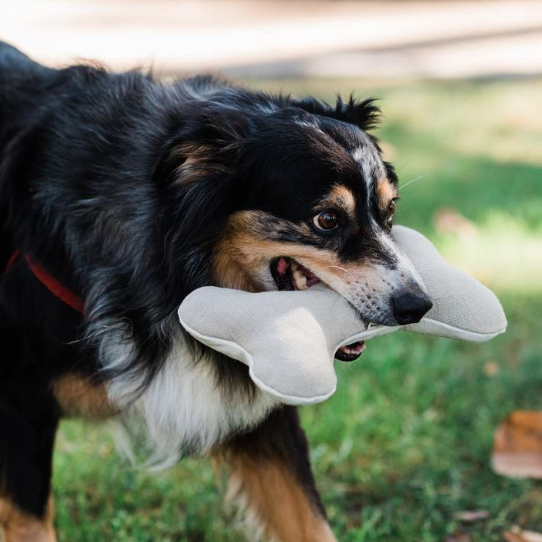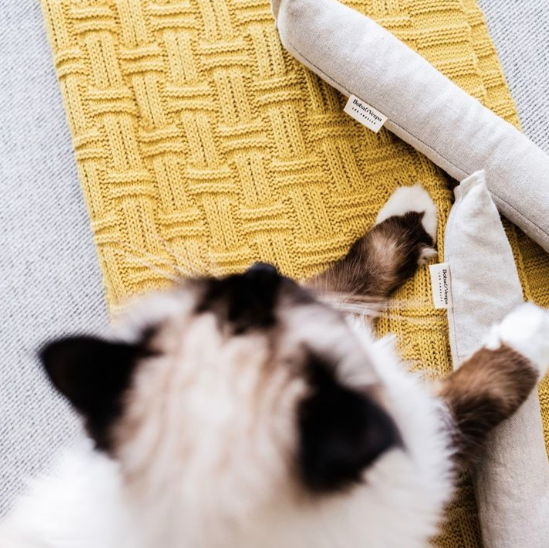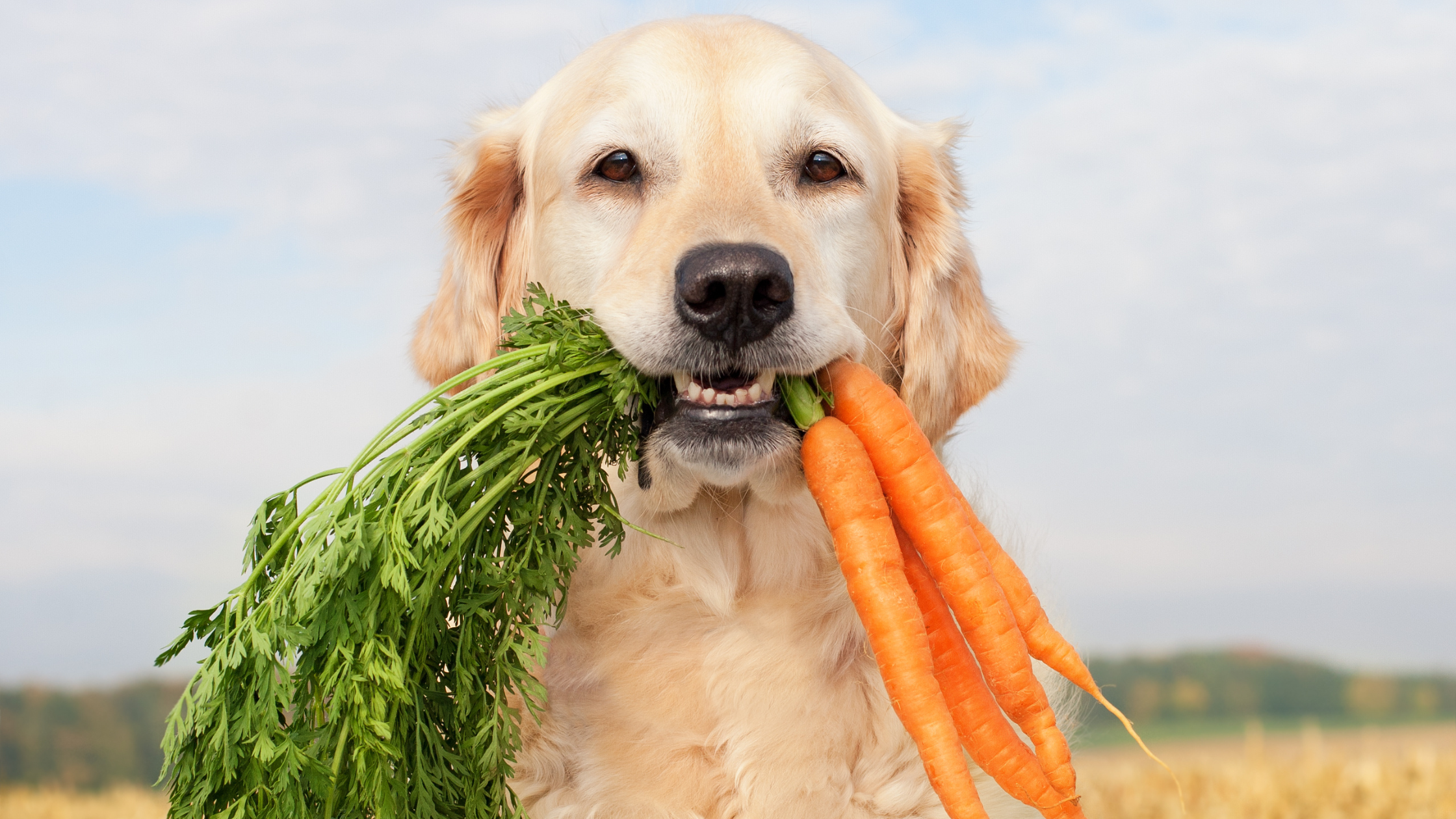Updated Oct 28, 2025
Have you ever caught your dog eating grass and wondered what on earth they are doing? You are not alone! Although it seems strange, grass eating is an extremely common behavior in dogs and is not always a cause for concern—but why do they do it? In this blog, we will explore the mystery behind why dogs eat grass and how this habit can affect their health. We will also share some useful tips that you can follow to help prevent your dog from eating grass in the first place.
The content and resources provided here are for informational purposes only. Please consult with your Veterinarian or other qualified professional regarding any concerns related to your pet’s health and behavior.
What Causes Dogs to Eat Grass?
There are various reasons, ranging from benign to more worrisome, as to why your pup may be turning to your lawn for a snack. Below are the most common explanations for why some dogs eat grass.
Diet Deficiency
Some veterinarians believe that dogs eating grass could indicate that their diet is lacking vitamins, nutrients, or minerals. Therefore, it is important to ensure your dog gets all the nutrients they need through a varied and balanced diet.
Moreover, your pup could instinctually eat grass as a natural source of fiber (the part of your diet that helps you digest food and pass stool). Changing your dog's regular diet to a higher-fiber diet could help keep grass eating under control.
However, if you decide to switch to a higher-fiber food, ensure you do so gradually to prevent vomiting, diarrhea, and an upset stomach, as these can lead to more grass eating!
Upset Stomach
Sometimes, dogs may turn to eating grass to relieve digestive discomfort caused by an empty stomach. If you notice your dog eats grass first thing in the morning before throwing up yellow foam, it could be because bile irritates their empty stomach. Grass can act as an antacid by helping the dog release some of the bile that is causing pain.
Eating grass due to an upset stomach tends to happen only occasionally. If your dog is a regular grazer, there is probably another reason why.
Anxiety
Many dogs experiencing anxiety may turn to eating grass as a coping mechanism or to self-soothe, similar to how some nervous humans chew their nails. Other compulsive behaviors to look out for include obsessive chewing and licking of the paws, destroying furniture, and excessive barking and whining. Learn about using CBD to help calm your dog or consider a natural calm and stress support supplement.
Boredom
Dogs are naturally curious creatures, and if they are not provided with enough mental or physical stimulation, they may turn to unconventional activities—like eating grass—to entertain themselves. Eating grass can also be an attention-seeking behavior. If your dog gets a reaction from you whenever they eat grass, they may continue this behavior whenever they want attention.
It is essential to provide your dog with physical exercise, mental stimulation with enrichment toys, and interactive playtime to help prevent boredom and discourage odd behavior like eating grass.
Instinct
If your dog already has a balanced and healthy diet, eating grass may not be a sign of nutritional deficiency but instead could be your dog's natural instinct. For canines in the wild, eating an entire animal provided an optimal diet, especially if that animal's diet consisted of various plants.
Domesticated dogs may have inherited the urge to scavenge for plants from their ancestors. Unlike cats, dogs are naturally omnivores, meaning that they eat both meat and plants.
This explains why most commercial dog food contains fruits, vegetables, and grains and why some domestic dogs eat grass despite having a perfectly balanced diet.
Taste
Of course, some dogs eat grass because they enjoy how grass tastes, especially in the spring when fresh grass is emerging or when they are thirsty.
Is Eating Grass Bad for Dogs?
Although occasional grass eating is usually considered normal behavior for dogs and is not often a cause for concern, it is important that dog owners pay careful attention to where and how often their dogs eat grass, as there can be hidden risks.
It is not necessarily the grass that causes issues for your beloved canine companion; other human, animal, and environmental contaminants can lead to more serious medical conditions and harm your dog's health.
For example, some grasses are treated with herbicides and pesticides that can be toxic to dogs if ingested. Never allow your dog to eat grass from a lawn that you know has been recently treated. Other toxic plants to dogs include daffodils, lilies, and tulips. If your pet ingests any of these plants contact your Veterinarian immediately. The ASPCA website has an excellent database of information related to toxic versus non-toxic plants for dogs.
Additionally, intestinal parasites like hookworms and roundworms found in the feces of other dogs can be easily ingested by your dog while plucking grass from the ground. You should look out for and take your dog to a vet immediately if you notice symptoms such as vomiting, diarrhea, weight loss, lip licking, or bloody stools after your dog has eaten grass.
Too much grass eating in dogs can also cause intestinal blockages and constipation, which can lead to other serious medical problems. Therefore, it is important to monitor whether your dog is eating grass excessively and investigate potential underlying illnesses that may be causing your pup to eat grass.
If your dog has typically never been a grass eater, it may also be more indicative of a health (or behavior)- related issue that should be addressed if they suddenly develop this habit.
How to Stop Dogs from Eating Grass
As dogs eat grass for various reasons, different approaches may work for different dogs. Below are six tips to follow if you want to help your dog stop eating grass:
-
Teach your dog the "leave it" command and go outside with them until you are confident they have broken the habit.
-
If you suspect your dog is eating grass due to an upset or empty stomach, try feeding your pup small, frequent meals.
-
Bored dogs eat grass! When your dog is in your yard alone this summer, give them a safe dog chew like BetterBone to keep their brains engaged and away from the temptation of chewing grass.
-
Most dogs respond well to affection-motivated training. When your dog gets distracted by grass on a walk, call them back and give them lots of praise and petting. This way, they will associate leaving grass as a good thing.
-
For other dogs, affection may not be enough. You could instead try food-motivated training and use your pup's favorite food to lure them away from eating grass.
-
Adding mineral and vitamin supplements to your dog's food can also help fight the dietary deficiencies that can lead to dogs eating grass. Try our cricket based dog treats for sensitive stomachs to support healthy digestion.
Beat boredom and grass eating with our natural, eco-friendly dog toys.







